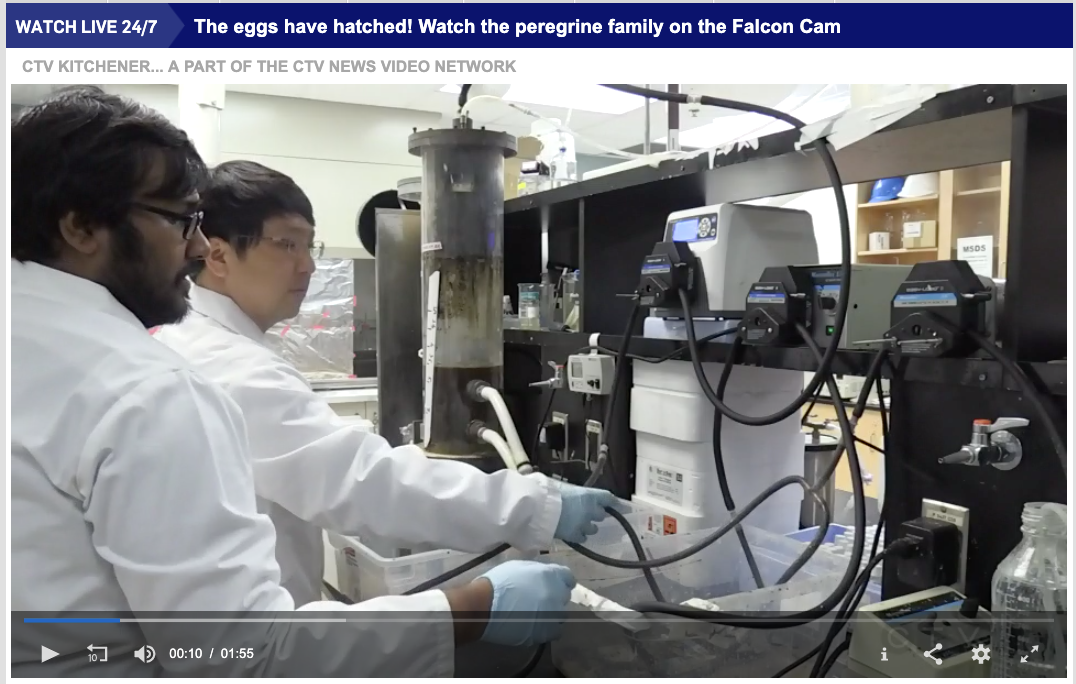
Water Institute member Hyung-Sool Lee, professor in the Faculty of Engineering, Civil and Environmental Engineering was featured on CTV News Kitchener this week sharing technology on a new fuel alternative.
Wasted food can affordably be turned into a clean substitute for fossil fuels, say scientists who used natural fermentation to produce a biodegradable chemical that can be refined as a source of energy. The chemical could also be used to replace petroleum-based chemicals in a host of products including drugs and plastic packaging.
“People like me, environmental biotechnologists, look at food waste as a tremendous resource. With the right technologies, we can extract numerous useful chemicals and fuel from it,” said Lee.
Most of the discarded food across the globe goes into landfills, researchers said.Technology already exists to reduce the environmental impact to produce electricity by breaking down wasted food.
However, the system ultimately yields little benefits upon comparison with the high costs of food waste mixing and wastewater treatment. The technology cuts those costs by collecting and recirculating leachate — a microbial cocktail mixed with microorganisms and nutrients. As they eat and digest food waste, the microorganisms spit out a chemical byproduct called carboxylate, which is a potential substitute for petroleum or crude oil.